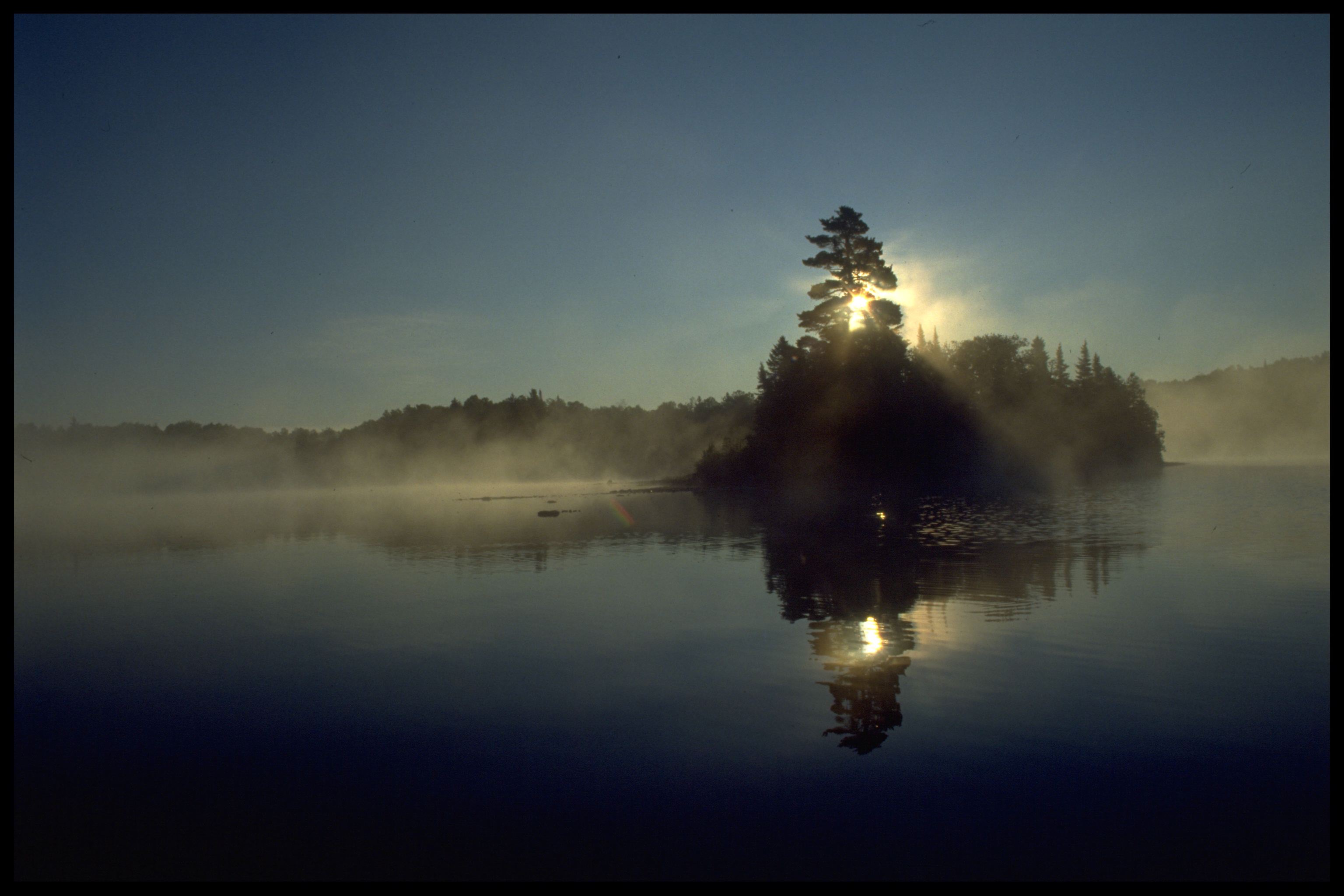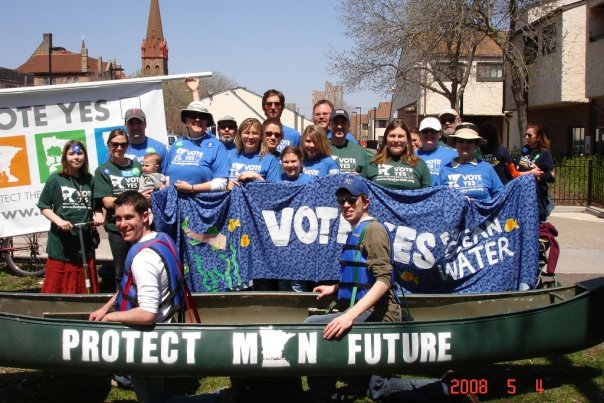
By: Justin Fay
On November 8, voters in Minnesota and around the country and cast their votes for offices ranging from President all the way down to city council, township supervisor and school board. The results were complicated; the outcome of many different issues, demographics and other factors all impacting each other. One thing we do know, however: virtually no Minnesotan went to the polls on November 8 thinking “I wish we had dirtier air and more polluted water.”
You wouldn’t be able to guess that from watching the first six weeks of the Minnesota Legislature in action, however.
Already, we’ve seen multiple bills introduced to weaken or undercut bedrock environmental laws. Other bills hand out exemptions to large corporations or limit the public’s ability to participate in decisions that impact their communities. With more than 1,000 total bills already presented in the Minnesota House alone, sorting through the clutter can take some work.
So, we’ve compiled a list of the craziest, most extreme anti-environmental legislation from the first month of the 2017 session. Two particularly troubling energy bills were previously covered on this blog, and so are omitted here.
Read up – and then call your legislator!
 6. Local governments prohibited from spending money on light rail without legislative approval
6. Local governments prohibited from spending money on light rail without legislative approval
Senate File 150; authors Osmek, Newman, Pratt, Chamberlain, Hall
House File 418; authors Runbeck, Petersburg, Newberger, Drazkowski, Hertaus, Anderson, S., Gruenhagen, Dean, Nash, McDonald, Koznick, Lohmer, Barr
This bill would prohibit the Metropolitan Council as well as individual cities and counties from spending any money on light rail transit projects without explicit approval from the Legislature. So, if Hennepin County wanted to move forward with a project to either expand an existing line or build a new one, they would need specific legislative approval to do so – even if such a project was wholly within their county and entirely paid for with County or City dollars.
Given clear opposition to transit projects among the current majorities in the Minnesota House and Senate, this bill amounts to a de-facto moratorium on light rail transit in the State of Minnesota.
5. Children banned from using bike lanes; people over 15 required to obtain bike lane permit
House File 499; authors Quam, Heintzeman
No Senate File as of February 14, 2017
This bill establishes a new permit requirement for the use of “urban bike lanes.” The permit would only be available to Minnesotans 15 years of age and older, effectively banning children from being able to use bicycle lanes in any developed area. This proposal, which was immediately opposed by the state’s leading bicycle advocates, would also require Minnesotans who want to obtain a bike lane permit to complete an educational course comparable to ones required for the use of motorized vehicles.
4. Local governments and others can petition for additional judicial review of MPCA actions
Senate File 695; authors Newman, Eken, Kiffmeyer, Tomassoni, Ingebrigtsen
House File 702; authors O’Driscoll, Urdahl, Pelowski, Poston, Marquart, Gruenhagen, Swedzinski, Fabian, Heintzeman, Nash, Lueck, Metsa, Kiel, Backer, Schomacker, Newberger, Uglem, Gunther
This bill would create a cumbersome new process for additional judicial review of virtually any action proposed by the Minnesota Pollution Control Agency related to water quality. The bill provides no tools or additional public interest benefit beyond those that already exist in current law. Rather, it sets up an entirely new, costly and duplicative framework with very few limitations on when and how it can be used.
Perhaps most disturbingly, the bill specifically states that local units of government cannot be assessed for the costs of initiating and completing this new review process, even if the final result is upholding the agency’s proposed action or rule. In other words, any local unit of government would effectively be given the ability to – free of charge and without limitation – block or delay implementation of any new or amended water quality rule, standard or permit.
3. Exempt pipelines from oversight by the Public Utilities Commission
House File 1151; author Bahr
No Senate File as of February 14, 2017
House File 1151 would exempt all pipelines – both oil and gas – from being required to obtain a certificate of need from the Minnesota Public Utilities Commission (PUC). Although this is just one of a number of proposed bills to weaken, bypass or circumvent the PUC, this one is particularly egregious given its breadth and the timing of its introduction on the heels of legislation to authorize a new gas plant in Becker, Minnesota. The Becker plant will require the construction of a new gas pipeline that would, under current law, be subject to oversight by the Commission. Given the potential cost of this pipeline to Xcel ratepayers, it is unconscionable that such a project would be considered without scrutiny by state officials.
Pipelines have become high profile political flash-points in recent years, with large projects such as Keystone XL and the Dakota Access Pipeline regularly garnering national headlines. Proponents of these projects frequently argue that the proposed pipelines are both necessary and safe; but actions speak much louder than words. If new and expanded pipelines for oil and gas are indeed in the public interest, there should be absolutely no risk from standard regulatory oversight in the form of a Certificate of Need.
Repeated attempts by fossil fuel companies and their legislative allies to bypass established safeguards for reviewing these kinds of projects clearly demonstrates recognition that these pipeline proposals would likely fail to meet even basic public scrutiny.

2. Repeal the Legacy Amendment
House File 698; author Green
No Senate File as of February 14, 2017
In 2008, Minnesota voters sent a clear signal by overwhelmingly voting to raise their own taxes to pay for clean water, habitat protection, arts and culture, and improvements to parks and trails. Since passage of the historic Legacy Amendment, critical new investments have been made in cleaning up our impaired lakes and rivers, protecting some of our most sensitive and endangered wildlife habitat and reinvigorating our state and regional park systems. Even better, all of these investments are being guided by careful and informed public and expert input through the Lessard-Sams Outdoor Heritage Council, the Clean Water Council and our state agencies.
House File 698 would propose a new constitutional amendment to be considered on the 2018 General Election ballot to replace the Legacy Amendment would a new measure that would fund roads and bridges, along with some continued funding for clean water. This proposal flies in the face of the overwhelming support for conservation investments clearly demonstrated by Minnesota voters in 2008. It also proposes an incomplete and poorly conceived solution for Minnesota’s complex transportation needs.
1. Repeal all environmental rules made by MPCA and DNR
House File 551; authors Green, Poston, Whelan, Erickson, Pugh
No Senate File as of February 14, 2017
It’s almost hard to know what to say about this one: House File 551 would eliminate any and all authority for the Minnesota Pollution Control Agency (MPCA) and Minnesota Department of Natural Resources (DNR) to enact rules to protect the environment. The bill would also adopt a sunset date for all existing rules promulgated by MPCA and DNR.
As Minnesota’s two primary environmental regulatory agencies, MPCA and DNR have long been delegated authority for creating rules that allow their agencies and the state as a whole to ensure scientifically rigorous rules and standards, compliance with Federal laws such as the Clean Water Act, and ensure both expert and broader public involvement in developing rules independently of the political process.
This bill would scrap this established framework and leave all environmental rules and standards exclusively in the hands of politicians. House File 551 wins the prize as the worst environmental bill so far in 2017.
As hard as it is to believe, we’re only six weeks into the session and haven’t even begun to see what are likely to be significant budget cuts directed at state agencies charged with protecting our environment and public health. Sadly, there is much more to come. It has never been more important for concerned Minnesotans to speak up and make it clear to lawmakers that rollbacks to protections for our environment are unacceptable.
Interested in taking action? Check out this handy tool: Who’s represents me?